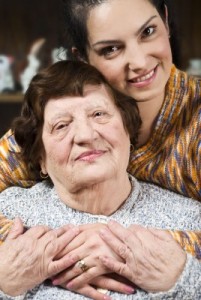 I have written a lot about caregiving, who the caregivers are, how to cope with caregiving and how to take care of the caregiver. Now, consider an important fact about older caregivers, besides the simple fact that 25% of older caregivers are attending to the needs of their older spouses. The fact is that the older spouse who is receiving the care ultimately will die, leaving the caregiver to cope with the grief and the guilt.
I have written a lot about caregiving, who the caregivers are, how to cope with caregiving and how to take care of the caregiver. Now, consider an important fact about older caregivers, besides the simple fact that 25% of older caregivers are attending to the needs of their older spouses. The fact is that the older spouse who is receiving the care ultimately will die, leaving the caregiver to cope with the grief and the guilt.
As a geriatric care manager I often find that while I am part of the care team for the older adult with health needs, I also am part of the support group for the family caregiver. This is particularly true when the care recipient finally does die. As a society we do a pretty good job of rallying around the surviving spouse when there is a death in the family. When the caregiver loses their spouse, the extended family and friends gather round to offer their support. Eventually, however, everyone goes back to their homes, their families and their jobs. The surviving caregiver is then left to cope with a now very quiet home and the sudden absence of familial support.
It is typical to see the grieving caregiver manifest any of a number of symptoms including head and muscular aches, weight loss or gain, depression, episodes of crying, difficulty sleeping, memory lapses, lack of focus, or loss of interest in social activities or friends. Research has shown that these symptoms – particularly depression – can last as much as two years with some caregivers. But it does not need to be this bleak in the aftermath of the funeral and the departure of family and friends.
In fact, we as GCMs find that we are often engaged to just “look in” on mom or dad by a member of the family who now may be a distance caregiver to the survivor. But there are some preventive measures families can also employ to help in the coping and then the healing for the survivor:
- When the illness has a longer trajectory, it is important to make efforts to prepare the caregiver for their loss ahead of time, in part by helping with the “goodbye” while the care recipient is still alive.
- During these conversations also help the caregiver to attend to any “unfinished business” with their spouse; it helps to limit the regrets and self-recrimination.
- Support a grieving process that begins while the care recipient is still alive; this includes helping to create a support network of people who will also be there after the death.
- Prepare the surviving spouse for what life will be like without their partner, particularly the financial responsibilities of living alone; this is something of a rehearsal of what the role will be, a rehearsal that allows for trial and error before they must go it alone.
- Appreciate that grieving is a gradual process and it can take at least a full year to get through all the “firsts;” this includes the first trip to their place of worship alone, their first wedding anniversary and other calendar events.
- Help the surviving spouse to appreciate that withdrawal of emotional attachment to their deceased spouse dose not dishonor their spouse; it is expected that they will go on and have a socially-rewarding life after such a loss.
If you know an older caregiver who lost the person they’ve cared for, contact us for a free consultation. We offer three 1-hour sessions to help the older caregiver transition through their time of grieving.
Charlotte Bishop is a Geriatric Care Manager and founder of Creative Care Management, certified professionals who are geriatric advocates, resources, counselors and friends to older adults and their families in metropolitan Chicago. Please email your questions to info@creativecaremanagement.com.




